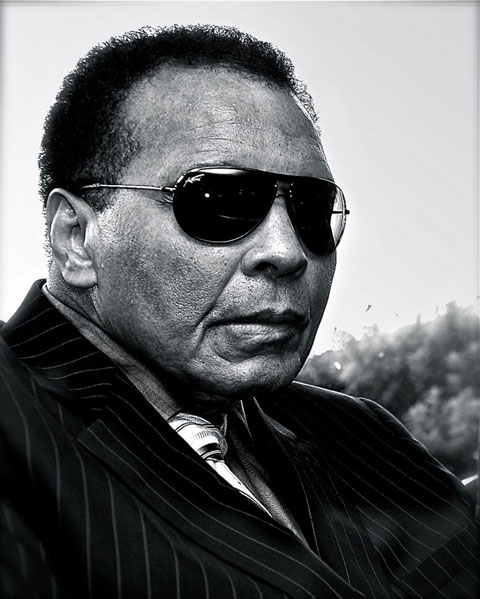Yes, you read that right.
Every obituary for Muhammad Ali has correctly touted the world famous athlete’s prowess in the ring. For the past twenty four hours, we have heard people speak about his ability to live his life, large and out loud, even poetically; his ability to stand up for his beliefs, even and especially when they were controversial; his moral stances regarding the war in Vietnam; his embrace of Islam; even the fact that he had a Jewish grandson and attended the boy’s bar mitzvah at Rodeph Shalom in Philadelphia. He was probably the most iconic athlete in the world.
But here is what we are not talking about.
Muhammad Ali made his living, created his legend, and nurtured his aura as a prize fighter and heavyweight champion.
That was his living. And that was his dying. That’s what killed him. He died of complications of Parkinson’s disease, brought on by countless blows to his head.
As my colleague, Rabbi Stephen Fuchs, has written:
Muhammad Ali was undoubtedly a great champion and a principled opponent of an ill-considered war who was willing to pay a heavy price for his convictions.
But we should also note that after more than 30 years of agony to Parkinson’s Disease directly caused by the punishment he endured in the ring, he has become yet another human sacrifice on the altar of our love for violent sport.
This is not speaking disrespectfully of the dead. Far from it.
This is something else. This is about asking the question: What is the role of religion in critiquing the culture of sport?
I have long bemoaned how sports has colonized so many corners of our national culture. Ask any clergy person or religious educator, who tend to do the bulk of their work on weekends, how difficult it is to compete against the omnipresence of sports in young people’s lives. I once said that “soccer is a very jealous goddess.”
But, it is way more than that. Some sports are almost deliberately crafted to insure that there will be maximum physical risk.
And, yes, even severe injury.
It is not only boxing.
It is football as well. Yes, even with the helmets, there is danger of serious head injuries, including degenerative brain injuries. 4o percent (!) of former NFL players suffer from brain injuries. Go see the movie “Concussion.” Even the NFL itself now acknowledges the link between football and traumatic head injuries.
What is Judaism’s response to this notion of (at least, potential) carnage as entertainment?
In the Jerusalem Talmud, we find this fascinating teaching. Jews were forbidden to go to the Roman coliseum to watch gladiator games. This prohibition is connected to the ancient prohibition of attending the theater and circuses. This must shock us, unless you realize that in Roman times, the theater and the circus were connected to pagan rites.
And gladiator games? It is quite simple. They were violent. People (not to mention animals) really got killed. Jews should not watch these things.
(And yet, there were those who objected to the objection — that because the Emperor had the ultimate power of life and death at those games — holding his thumb up or down — those in the crowds could scream for life, and therefore save a life).
I deeply respected Muhammad Ali.
But, would it be too much to ask at this moment of mourning — that perhaps his death might encourage a national conversation about sports safety?
After all, both Jews and Christians come from a tradition in which Deuteronomy demands: “Choose life!”






